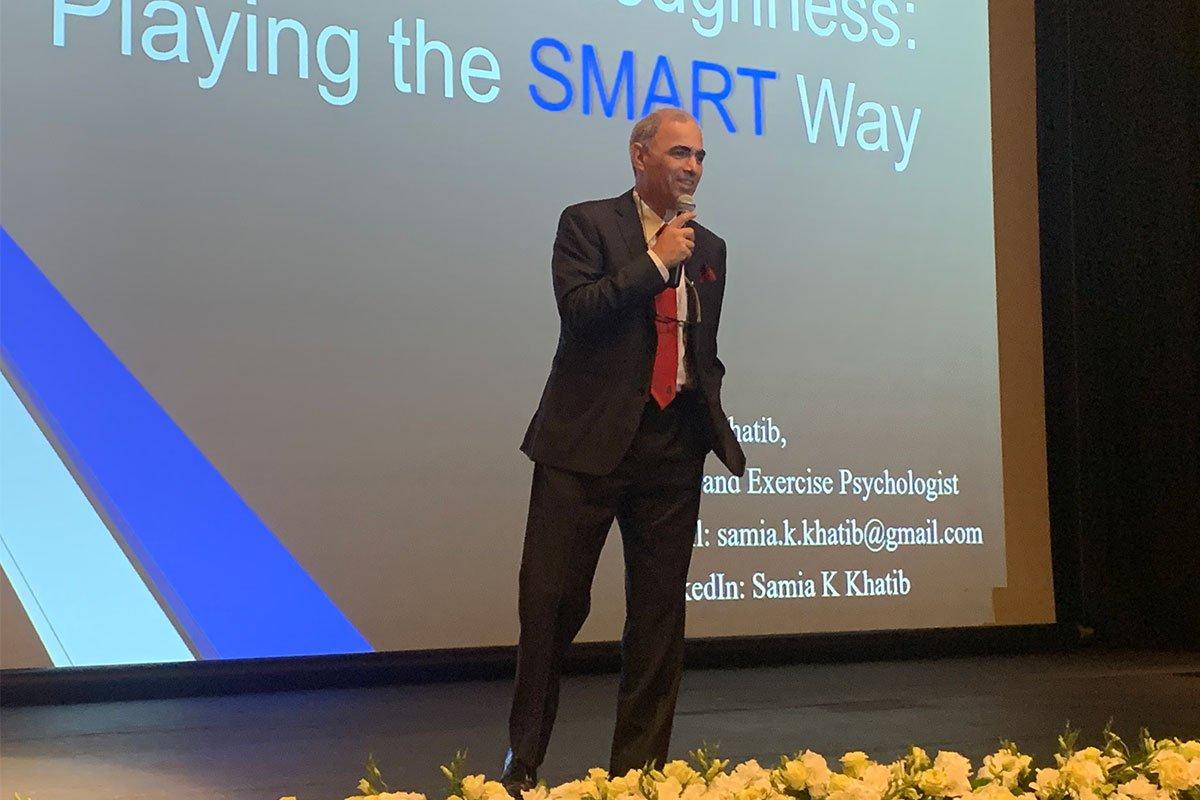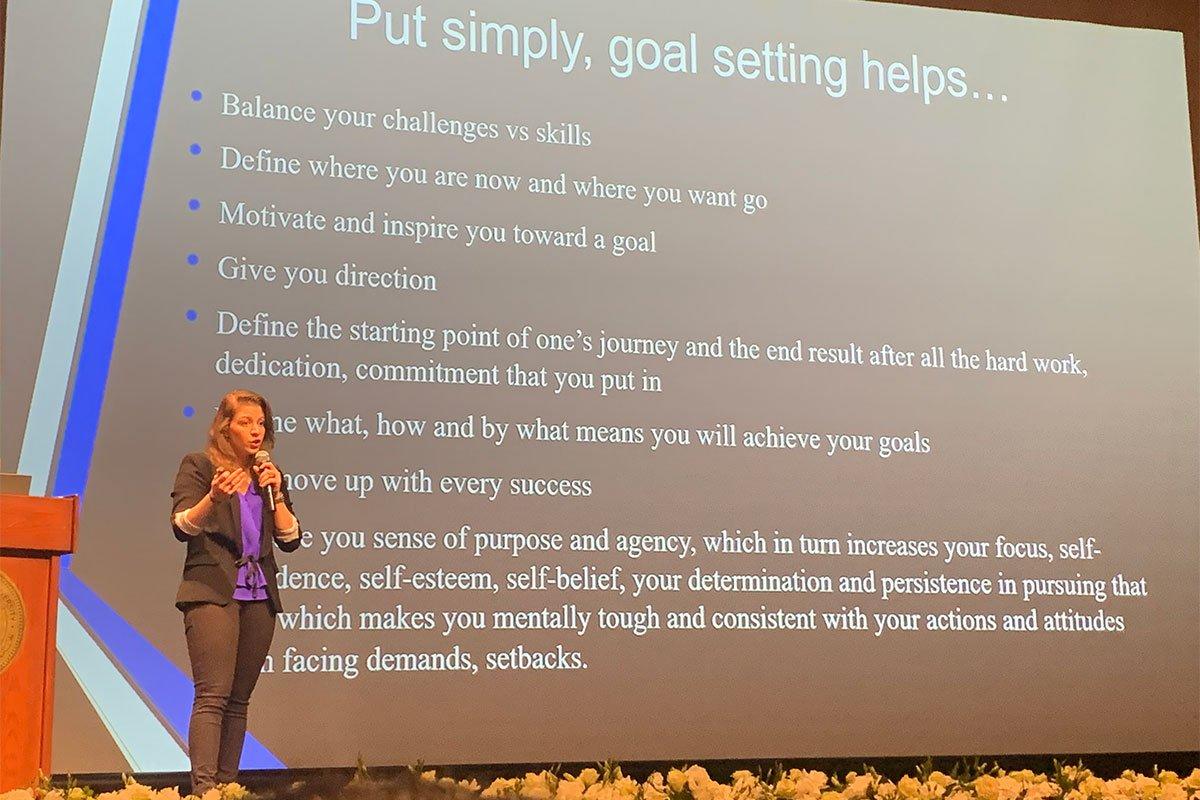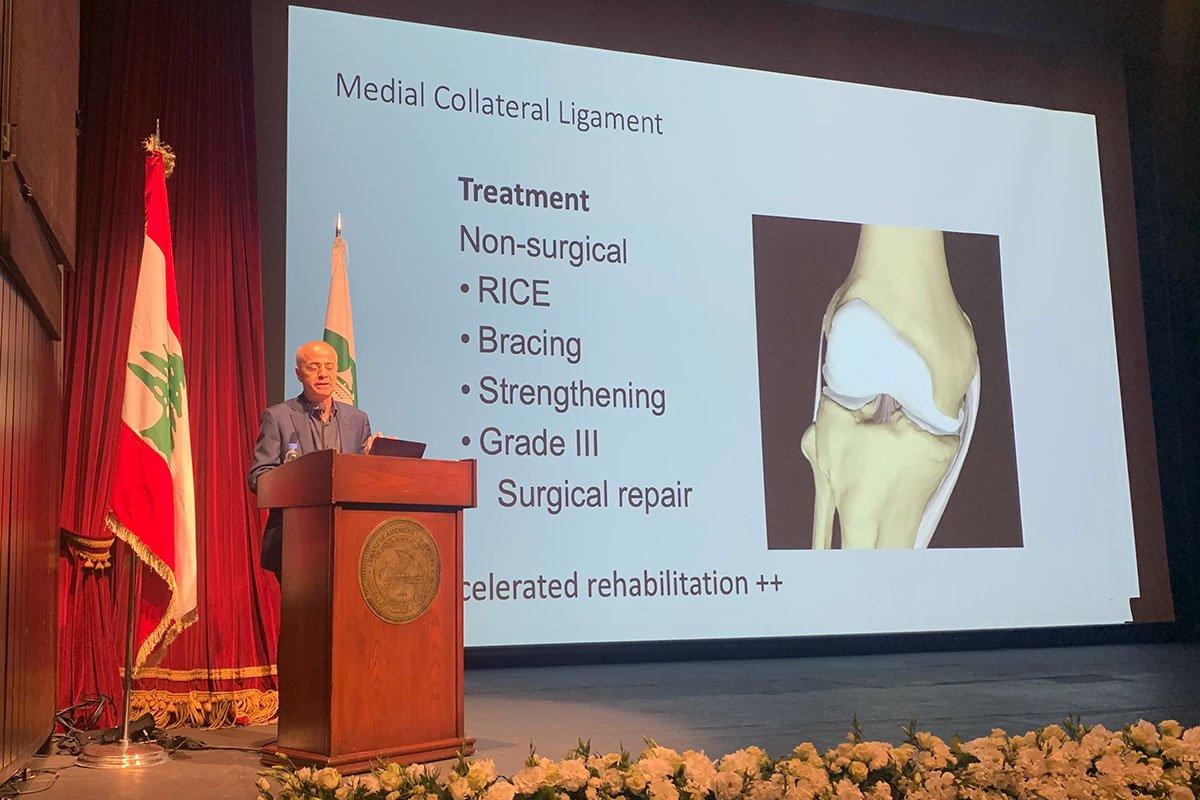Education and Sports Conference: Setting a Trend
The Department of Education and the Athletics Office invite specialists to present the latest practices and trends in sports.
The Department of Education and the Athletics Office held LAU’s First Innovation, Education and Sports conference where specialists in nutrition, medicine, psychology and management presented the latest trends in the field.
The event, sponsored by All Prints Distributors, was co-organized by the Education department Chair Rima Bahous and Director of Athletics Sami Garabedian.
Addressing attendees, Dr. Bahous highlighted “two worrying issues” that are still in practice in some K to 12 schools in Lebanon. She said teachers who do not have a degree or certificate in sports are “teaching sports in order to complete their load” of teaching hours per week.
The second problem was that in many schools each class has “one sports session per week or every other week at all levels. Sports for them does not count.”
“Many students don’t even attend the sports session, because they either have to practice their reading skills with their tutor or have to practice a musical instrument,” she added.
Garabedian, who is also a faculty member at the department, said that the topics selected were of “interest to every single student, every single day of the week, whether it is nutrition, sports injuries, rehab, or physical fitness.”
Kicking off the conference, LAU Assistant Professor of Nutrition Lama Mattar underlined the major role played by nutrition in athletic performance and training.
“Nowadays, to maximize performance, we really need to individualize the diet for the athletes depending on their preferences, goals and any specificity of their training,” she said, as opposed to past one-fits-all diet programs.
Energy availability, Dr. Mattar noted was “more important to take into consideration for athletes than energy balance in general.” This new concept refers to the amount of energy that is left for a body to function after a performance or a training session.
Case in point, while sports injuries are sometimes mistaken for stress fractures, they are in fact caused by a lack of energy due to inadequate nutrition.
“Besides the training, athletes might need to eat more carbs, proteins and fat, in order to protect their body.” For example, the higher the intensity of the workout and the longer the duration, the more carbs the athlete would need.
The second speaker at the event, Dr. Alfred Khoury, orthopedic surgeon and sports medicine specialist at LAU Medical Center-Rizk Hospital presented the newest guidelines in the diagnosis and treatment of athletes.
“The big two questions are when and how much time the athletes need to recover and how they can speed up the recovery time,” he said of the key concern for doctors, coaches and players.
Addressing physiotherapists and sports doctors, he advised them to first and foremost listen to the athletes, who would tell them what is wrong.
A second key factor was the need to educate paramedics on how to handle sports injuries with care to avoid the risk of doing more harm to an otherwise simple injury. “Our goal is to give a fast and accurate diagnosis; this is the key to proper treatment,” he said.
Among the challenges that doctors face nowadays, noted Dr. Khoury, is Sudden Cardiac Arrest in Athletes. “We changed the name from Sudden Cardiac Death in Athletes to Sudden Cardiac Arrest because through education and prevention we were able, in 2019, to save the lives of many athletes,” he said.
“We developed a big medical team, and a defibrillator is now mandatory on the field,” he continued. “We also received a pre-competition assessment from the FIFA or the FIBA to ensure we have each player’s pathology on hand.”
The one-day event also featured Dr. Maher Fathallah, a physiotherapist at LAU and the Beirut Physiotherapy Center, who talked about the newest practices in physiotherapy; Sport and Exercise Psychologist Samia Khatib who focused on mental toughness and goal setting; LAU part-time faculty on fitness and health Edwen Khoury who presented on staying fit and competitive; and life coach Dr. Tarek Charaf, a specialist in sports management, who outlined the best and current practices in sports management.


